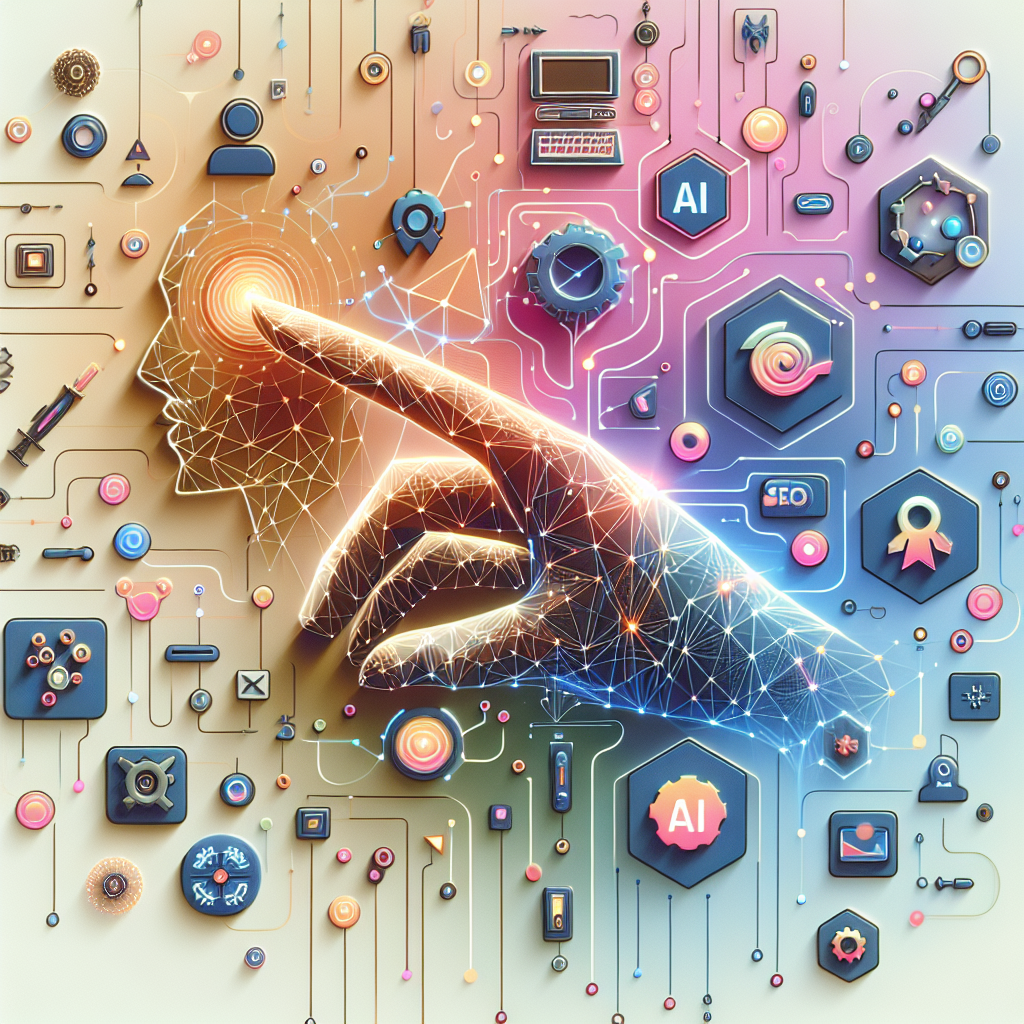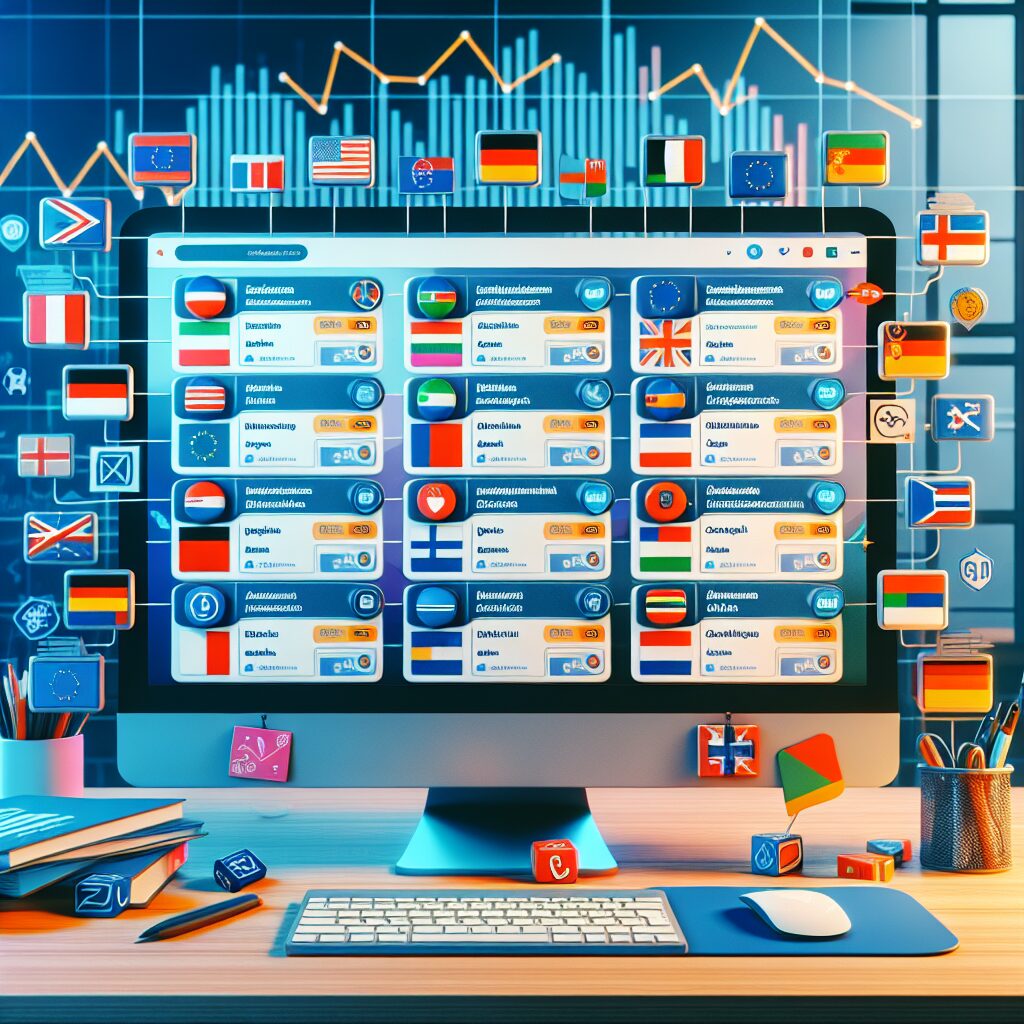About eldris
At Eldris, we automate SEO, multilingual site expansion, and EU compliance for brands scaling across Europe. Our AI-powered platform handles everything from content publishing to regulatory docs—so you don’t have to.
In This Article
- AI-driven SEO leverages machine learning and NLP to refine content and user experiences.
- Personalisation, localisation, and behavioural analysis lie at the heart of AI SEO success.
- Tools like MarketMuse, Surfer, and Eldris offer real-time automation at every SEO stage.
- Case studies reveal notable traffic and conversion increases through AI integration.
- The future points to hyper-personalised, self-adapting SEO and UX across platforms.
The Rise of AI SEO: What’s Changed?
From Keywords to Intelligence: Why AI Matters
AI-driven SEO is transforming digital marketing by shifting focus from traditional keyword-stuffing towards intelligent search analysis and personalisation. Advances in machine learning, data science, and natural language processing have enabled search engines and SEO tools to assess user intent with remarkable precision. Instead of feeding on raw keyword frequency, AI systems now analyse how users interact with content, factoring in click-through rates, bounce rates, dwell time, and even sentiment analysis.
In the past, marketers had to manually research keywords, optimise meta tags, and regularly audit their content for compliance with changing algorithms. AI-driven SEO automates much of this process. Smart platforms now predict keyword trends, recommend topic clusters, and even draft semantically rich content. Additionally, AI factors in far more variables than a human could feasibly manage—from search intent to device type, time of day, and historical context, delivering a more intelligent optimisation strategy.

Understanding User Behavior with AI
Personalisation Through Predictive Analytics
Understanding how users interact with digital experiences is the cornerstone of effective SEO. AI-driven SEO tools use predictive analytics to comprehend user behaviour in real-time. Algorithms evaluate browsing history, previous queries, click pathways, and session duration to create a user profile. This profile fuels personalisation engines that dynamically adjust page content, interface layout, or even call-to-action placements based on a user’s anticipated needs.
Moreover, AI platforms take localisation to new heights. Instead of generic geographic targeting, machine learning models consider hyperlocal variables, such as street-level trends, language nuances, and even regional buyer behaviour. By fine-tuning content offerings accordingly, businesses offer highly tailored experiences that in turn increase engagement and reduce bounce rates—core metrics that algorithms reward in rankings.
“With AI-driven SEO, the focus has finally shifted from search engine optimisation to human experience optimisation.”
How AI Optimizes Content Automatically
One of the most compelling capabilities of AI-driven SEO is its power to optimise content automatically. Content intelligence platforms now utilise machine learning models to assess content gaps, suggest semantic enhancements, and verify competitiveness for target keywords—all in real-time. These platforms embed AI-editors that recalibrate content readability, structure, and keyword density without manual intervention.
For example, AI can identify underperforming blog posts and recommend structural enhancements such as internal linking (e.g., Learn more about AI-Driven SEO Automation), subheading segmentation, and suggested word count adjustments. Some tools even auto-generate schema mark-up, ensuring your structured data aligns with Google’s best practices. Such real-time optimisation not only improves ranking probability but also enriches the user experience by streamlining the path to relevant information.
AI-powered Interfaces and Dynamic UX
The intersection between SEO and user experience (UX) is now more intertwined than ever, and AI lies at the centre. AI-powered interfaces adapt dynamically to individual users based on behavioural inputs. For instance, if a user frequently engages with video content instead of text, the AI can prioritise media-rich layouts, increasing dwell time and content consumption.
Moreover, adaptive UX extends into accessibility adjustments, auto-generating layout changes to accommodate device capabilities, screen size, and even visual impairments. These enhancements align with Google’s Core Web Vitals and demonstrate a direct impact on SEO rankings. As AI learns more about what different user segments prefer, your digital experience becomes more bespoke—building trust, improving retention, and enhancing SEO efficacy.
Machine Learning Models that Predict Search Trends
Predictive capabilities form a substantial advantage of AI-driven SEO. Through machine learning models, SEO tools can analyse historical data, competitor activity, and external market factors to forecast future search trends. This predictive power lets marketers get ahead of the curve, shaping content strategies around upcoming surges in interest before competitors even notice the pattern.
For example, a sudden uptick in interest in “eco-friendly packaging” among European consumers might prompt AI systems to recommend new cluster content, FAQs, and pillar pages related to sustainability. Capitalising on these trends early secures first-mover advantages in SERP visibility. Furthermore, by linking these insights into broader digital strategies via internal linking efforts like Read a related article, businesses craft a more coherent content architecture that supports ongoing SEO success.
Voice Search and Conversational SEO via AI
With the ubiquity of smart speakers, voice assistants, and natural language AI interfaces, voice search has become a key driver in the evolution of SEO. AI-driven SEO strategies are inherently suited to handle the intricacies of conversational queries, which differ significantly from standard typed queries. People don’t type how they speak, and that distinction changes everything from keyword research to site structure.
AI leverages natural language processing (NLP) to parse and understand colloquial, long-tail phrases. Tools now auto-suggest conversational content structures that mirror actual human dialogue patterns, making them more likely to be picked up by voice-search algorithms. This shift also stresses the importance of Featured Snippets, as voice assistants commonly read them aloud. AI technologies help optimise for this snippet position through structured query representations and dynamic schema generation.
Top AI SEO Tools Winning in 2025
Several standout platforms are dominating the AI-driven SEO landscape in 2025. These solutions combine automation, real-time analytics, and customisation. Some of the leading tools include:
- Surfer SEO: Combines AI with NLP to build high-performing content outlines and identify intent gaps in existing pages.
- MarketMuse: Automates content planning and performs real-time keyword research using AI and topic modelling.
- Clearscope: Offers AI-assisted recommendations to improve SEO-friendly writing, directly integrated with CMS platforms.
- Frase: Uses AI to generate content briefs and aid ranking with intelligent FAQs and comprehensive response frameworks.
- INK for All: Uses AI to help craft content that aligns with audience expectations and SEO parameters simultaneously.
Most of these platforms also offer API integrations, empowering enterprise-level users to connect SEO efforts with CRM data, PPC campaigns, and social listening tools. Making use of these tools allows organisations to streamline content creation, editing, and deployment across multiple regions and languages, particularly when paired with internationalisation strategies.
Integrating Eldris for EU-Focused AI SEO Automation
When executing a pan-European digital strategy, legal compliance, language diversity, and user expectations vary drastically across member states. This is where integration with Eldris becomes critical. Eldris not only aligns AI-driven SEO initiatives with GDPR-compliant data frameworks but also enhances multi-lingual support through neural machine translation technologies.
Furthermore, Eldris supports localisation workflows by integrating AI content optimisation in regional contexts. For example, content for Germany will have dramatically different phrasing and legal compliance needs than material aimed at Portugal, even when the service being marketed is the same. By synchronising meta-data, keyword mapping, and user interface translations via AI, Eldris ensures content resonates culturally and ranks competitively in each market.
Real Case Studies: SEO + AI = Results
Consider the case of a UK-based fashion e-commerce retailer. By integrating AI-driven SEO with their existing SEM strategy, the company experienced a 38% increase in organic traffic over six months. AI tools analysed bounce rates, page depth, and user exit flows, recommending targeted content additions and layout revisions tailored to high-intent users.
Another notable case comes from a B2B SaaS firm operating in the Nordics. Using AI-powered keyword clustering and dynamic page generation, they created custom landing pages for each industry segment. The strategy not only increased conversions by 42% but also cut their time-to-rank for new content in half. These measurable improvements illustrate how deeply transformative AI integration can be, even in crowded digital markets.
What the Future of UX and SEO Looks Like
The trajectory of AI-driven SEO suggests that future SEO and UX ecosystems will operate symbiotically in real-time, constantly learning from user actions and adjusting dynamically. Static pages may become entirely outdated, replaced by “evergreen adaptive experiences” curated by AI agents that understand individual users at scale. This hyper-personalisation will not just be a luxury but a competitive necessity.
In addition, we may see decentralised AI models operating at the browser or even ISP level, predicting content needs pre-emptively and serving optimised pathways before a search is even executed. The role of data privacy frameworks like GDPR will expand, making platforms like Eldris even more essential. Collaboration between ethics, compliance, and AI ecosystems will define the next wave of AI-powered digital strategy.
Your Next Steps To SEO Automation with AI
For organisations hoping to capitalise on AI-driven SEO, the first step is education. Understand what tools and analytics are available, identify your current content gaps, and assess your technical readiness for AI automation. Begin by auditing your content infrastructure—both technical (schema, page speed) and semantic (content relevance, user intent alignment).
Next, integrate an AI tool that suits your vertical and audience size. Ensure data flows between systems are GDPR-compliant and make use of behavioural insights to optimise not only for search engines but for the human beings on your site. Most importantly, keep testing. The nature of AI means it gets smarter when you feed it data—so leverage it iteratively.
Conclusion: Elevate User Experience Through Smart SEO
[CONCLUSION_CONTENT]
AI-driven SEO isn’t simply about automation—it’s a paradigm shift in how we understand and serve the digital user. It unites technical efficiency with empathetic design, enabling web experiences that feel tuned to each visitor. By adopting AI tools and aligning them with smart strategies, businesses set themselves up for enduring digital success. Whether you’re looking to improve SERP rankings or foster long-term loyalty, AI-powered strategies provide both scalability and depth. Start small, scale fast, and innovate continuously—because the future users are already searching.
Great guide on revolutionizing-user-experience-with-ai-driven-seo – Community Feedback
How is AI revolutionizing SEO?
AI transforms SEO by automating content optimization, personalizing user experiences, and providing deeper insights to better match user intent and search algorithms.
What is the most effective AI tool to improve SEO?
The best AI SEO tools leverage machine learning to automate keyword research, optimize content, and analyze competitors, streamlining workflows for advanced results.
How can businesses optimize SEO for AI-driven search?
Businesses should focus on high-quality, intent-driven content, leverage AI-powered analytics, and create seamless user experiences optimized for both users and AI algorithms.








